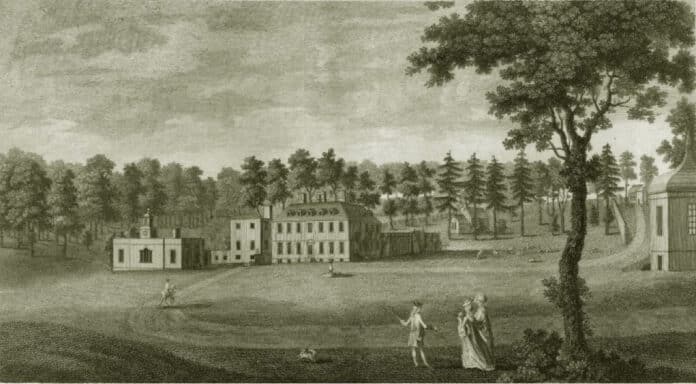Herewith is a section from a Telegraph article in which Nick Hayes researched extensively for his book The Book of Trespass by investigating the estates that were taken from the Commons and turned in to the private property of very wealthy people. In many cases the funding used was from the profiteering from slaves in the seventeenth and eighteenth centuries.
In 2016 Hayes
‘approached the longest wall in England. I put my hands on its ledge, lifted myself up and climbed into 7,000 acres of private land belonging to the representative of South Dorset, Richard Drax MP.’
He continues:
‘This wall, surrounding the grounds of Charborough House, was of particular interest to me. It was built by Richard Drax’s ancestor, John Sawbridge, who married into the Drax dynasty, and who was able to finance the build following a recent windfall from his sugar-cane estates in the Caribbean – although the money came not from his sugar, but from his slaves.
James Drax first landed in Barbados in 1627. He cleared the land for farming, planted tobacco, watched it repeatedly fail, then looked to the Dutch colonies in Brazil for a better idea: sugar. His estates were first worked by the indentured servants rounded up as vagrants or “sturdy beggars” in England and Ireland, and sent to the colonies as punishment. But within a decade he was importing even cheaper labour – free, in fact – in the form of enslaved people from West Africa….’
The Drax family were not alone as it is estimated that one sixth of all Britain’s country houses were bought from the ill gotten gains of slavery and human emasculation.
However, in Drax’s case
‘the family were surrounded by other wealthy dynasties in the Caribbean just as they were surrounded in England. The Beckfords, owners of massive estates in the Caribbean, settled in Fonthill, just 20 miles up from Charborough; the Codringtons bought up land just outside of Bristol, in Dodington Park, now home to entrepreneur James Dyson.
The interior of the Drax estate tells a silent story of what the colonialists did with their property. The purchase of land secured a firmer grip on power, not just in one lifetime, but for many generations to come. Farming, forestry, pleasure gardens, hunting, shooting – all of these became reliable sources of income, an accumulation of private profit in direct proportion to the dispossession of the commonwealth. In fact, what happened abroad – the mining of minerals, the rent on land, the dispossession of the locals – were colonial methods first practiced on English soil, as the landlords colonised the commons at home.
At Charborough, my friend and I wandered for several miles across the estate. (For an MP who once stood up during an immigration debate in Parliament to declare “this country is full”, there’s certainly a lot of empty space behind Drax’s walls.) Eventually, while making our way through planted pines, we were discovered by a gamekeeper. There’s no way through here, he said, evidently expecting my friend and I to ignore the path on which all three of us were standing. Very politely, and in no uncertain terms, we were chucked off the land.’
It is a deep shame that the likes of Richard Drax have been able to behave like pirates and to deprive so many of what is historically all of our land. We have been deprived of it by those who benefitted from human misery and still benefit from human misery.
As highlighted by the ‘words of Eric Williams, the first prime minister of Trinidad and Tobago, and author of the 1944 book Capitalism and Slavery: “The reason (for slavery) was economic, not racial. It had to do not with the colour of the labourer, but the cheapness of the labour. Slavery was not born of racism: rather, racism was the consequence of slavery.”’
All status and wealth is a result of human social construction. People rob others with some creating laws to protect themselves and the rest punished. Richard Drax may believe himself to be more important but he shits and pisses like everyone else. He is as much an animal as you and me and the sooner we get that the better.
As a public we should DEMAND it is given back or at some point in the future we WILL take it back ourselves.
James Finlayson







